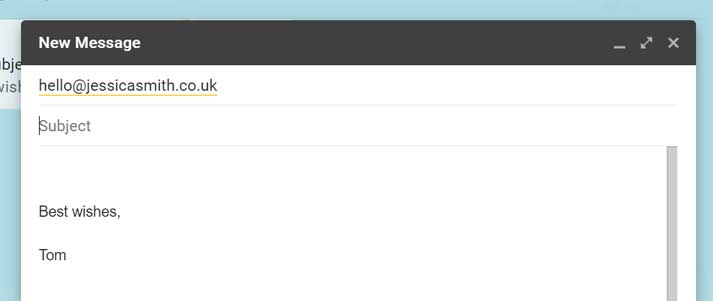How to create a professional brand online
Taking care of your online reputation is more important to your job hunt than you might think. This list of top tips will help you create the ideal professional profile online.

Credit: AlexHliv, Dean Drobot, Look Studio– Shutterstock
Do you think creating a professional profile online is as simple as deleting drunken selfies from your Instagram? That's a good start, but there's a lot more to it than that...
Writing an amazing CV should always be your main priority when applying for a new job. But don't forget that your entire online presence plays a major part in the recruitment process, too.
The trick is not to make yourself invisible, but to craft an online profile that will impress future employers. We'll show you how...
Do employers and recruiters research you online?

Credit: Evan Lorne - Shutterstock
The short answer is: most likely, yes. You should expect recruiters and employers to look you up on Google. They should get a good impression of you when they do.
This doesn't mean you should panic and try to erase yourself from the internet completely. Instead, you want to make sure they don't stumble across any embarrassing photos or posts.
It's worth bearing in mind that if recruiters can't learn anything about you online, they will: a) wonder why, and b) not get a good feel for your personality and who you are as a person.
We've heard that some even bin job applications from candidates they can't find online.
What is a digital footprint?
Your digital footprint is a record of all your online activity – from Facebook posts and Tweets, to blog posts and comments.
Of course, your employer isn't going to conduct a thorough search into all of your online activity since the beginning of time. However, you should be aware that all the information is out there.
The solution is to take control of your public online image by creating professional content that recruiters and employers can easily access, and will be super impressed by. We've put together some tips on how to do it...
How to impress employers online
These are the best ways to build a professional brand online:
-
Create the perfect LinkedIn profile

Credit: LightField Studios – Shutterstock
As you can probably guess, your first port of call when it comes to looking more professional online should be LinkedIn.
LinkedIn is the ultimate digital platform for recruiters to assess potential candidates. That's why you must do what you can to perfect your page and stand out from the crowd.
From your profile image to the headline, and all the experience you choose to put on there, make sure you construct your page in a way that presents you as an impressive employee.
We've got a guide on how to make a great LinkedIn profile to grab the attention of potential employers.
-
Make your own professional website
While a strong LinkedIn profile is important, an even more impressive way to take ownership of how you appear in Google searches is to set up your own website.
It doesn't have to be anything complicated. Even a simple website where a recruiter can find out a bit more about you will make a massive difference.
We've got a great guide on how to create a website in under 20 minutes. And, once your site is live, you can then use it to create an interactive profile with buttons for your CV (complete with key skills), an 'About Me' page and an online portfolio (if applicable).
Don't think it's worth doing? Google your name or email address and see what comes up.
Creating professional content online will increase the chances of someone seeing that first. It can also push anything you'd rather employers didn't see further down in the Google search results. Plus, you can even make money from your website.
Try to purchase your name as a domain (e.g. www.jessicasmith.co.uk), as this increases the chances of your personal URL appearing when a recruiter searches for you and looks professional. What's more, it allows you to...
-
Get a personalised email address

And no, we're not talking about a Gmail/Yahoo/Hotmail account – everyone has one of those.
What we mean by a personalised email is one that's hosted on your own personal domain name.
Once you've bought your website domain, you'll be able to create your own email address to go with it (e.g. [email protected]).
If your name's already taken, try adding in your middle name or initial to differentiate yourself (e.g. jessicamsmith).
-
Start a blog
The great thing about having a blog is that it's not directly job-related but can still offer employers an insight into the more personal, non-professional 'you' (or the side that you'd like them to see, anyway!).
It doesn't matter if you're applying for a job in construction or journalism, good communication skills are always important and a blog is a great way to demonstrate yours.
Make sure you take the time to make the content on your blog top-notch and error-free – especially if you intend to use your blog to make money.
You can write about pretty much whatever you want, such as a hobby or personal interest. But it's always a bonus if you can find a way to relate it to your chosen industry.
It shows an employer you're passionate about the subject area and up-to-date with any current developments.
Just be careful not to use your blog as a platform to aimlessly rant, otherwise, you might come across as a potentially difficult employee.
-
Make your personal social media accounts private

Credit: tuthelens - Shutterstock
Facebook is likely to be one of the first results a recruiter sees when Googling your name. That's why it's worth taking the time to alter your privacy settings. Make sure they can only see what you'd like them to see.
There are many ways you can employer-proof your social media profiles.
For example, if you're keen to keep 'social you' and 'professional you' separate online, you could make an alias account on Instagram to use for friends.
But, we'd advise against advertising that you have a separate private account on your social media bios. Some people might interpret this as a bit suspicious.
Try changing your usernames to include your middle name, or to a shortened version of your name (Jessica to Jess, for example). This way, you can keep it hidden from employers who are searching for you.
Keep your profile picture semi-respectable too, and remember that you can set your privacy settings so people have to request your permission before tagging you in any posts or photos.
This is another reason why you should never add strangers on Facebook. It could be a recruiter going undercover to dig dirt on potential candidates.
Unsure what the gender pay gap is and how it might affect you? Our guide will talk you through it. -
Show your professional and personal personality online
The hardest thing about managing your online presence is trying to strike a balance between showing your personality and looking professional.
While it's important to come across as a great employee, you also need to show you're human too.
Employers care just as much about whether you'll be a good fit for the team as they do about your work experience and qualifications. Try to show a bit of your personality and sense of humour online.
Twitter is a particularly good platform for this. But while we're on the subject...
-
Be careful about what you post on Twitter
Going on rants about celebrities you think are losing their looks these days doesn't exactly look good to potential employers. And neither does having arguments with people on the platform.
Remember that if an employer has your Twitter handle, they can see entire threads of Twitter action at a glance. They can very quickly find out if you decide to take to social media to whine about your delayed ASOS delivery.
Avoid coming across as stroppy. Have fun but keep it professional.
Don't forget that Twitter can also be a great way of connecting with people in your industry. Follow the right people and engage with them if they start a conversation about something relevant to your work.
-
Protect your passwords online
Having your online identity sabotaged after getting hacked is about as unprofessional as it gets.
Imagine this: your email account gets hacked and a spam message is sent out to every person on your contact list, including to the companies you've spent ages sending tailored CVs and covering letters to. It doesn't look great...
Our guide on how to avoid getting hacked will have your online accounts secured in no time.
You don't need to be terrified of posting things online. Social media is a huge part of our daily lives after all, and having a good online presence can hugely help your chances of getting a graduate job.
Staying switched on and savvy about how you could appear to potential employers online will mean you won't lose out on any job opportunities for avoidable reasons.
How's your job hunt going? Make sure you've crossed off all our tips on taking your job hunt to the next level.








